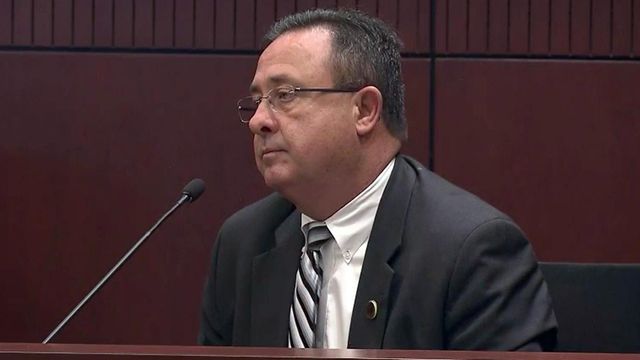Protesters argue Legislative Building rules too vague
Twelve protesters, including the state president of the NAACP, were back in court Tuesday on charges they disrupted state lawmakers during an April demonstration at the Legislative Building.
Posted — UpdatedThe group was the first of more than 900 people arrested during the weekly "Moral Monday" protests against the legislative agenda of the Republican-controlled General Assembly during the summer.
The protesters said lawmakers were hurting the poor, the unemployed, students and other groups through their actions. They were charged with trespassing, failing to disperse and violating Legislative Building rules.
One day of testimony in the trials of Rev. William Barber and the other 11 protesters was held in October, and the trials are expected to continue Wednesday.
General Assembly Police Chief Jeff Weaver spent much of Tuesday on the witness stand, explaining the rules about gatherings at the Legislative Building.
"We knew they were coming to commit acts of civil disobedience." Weaver said.
Defense attorneys grilled him about where he and his officers draw the line, arguing that the rules, which were drafted in 1987, are vague and can be interpreted differently.
"It does go to the attitude of the leadership of the General Assembly than any voice of protest ought to be stifled," defense attorney Irving Joyner said..
Weaver said the protesters broke the rules by blocking a door, holding up signs and disrupting the business of the General Assembly. The protesters deny they disrupted lawmakers and maintain they were simply exercising their constitutional right to free speech.
"The words he used did not lead you to believe he was going to engage in violence?" defense attorney Scott Holmes asked Weaver, referring to Barber speaking to other protesters.
"I didn't hear anything about violence from Rev. Barber," Weaver replied.
"Was there anything illegal about them praying?" Holmes asked.
"There is nothing illegal about praying, but the fact that they were gathered on the second floor in an area that is not for that purpose," Weaver said.
He said the protesters were gathered outside the doors to the Senate chamber, forcing a sergeant-at-arms to lock the doors. But he acknowledged that there was no evidence that anyone trying to get into or out of the chamber was prevented from doing so, and nothing in the building rules prohibits people from standing in front of the doors.
Weaver said the protesters displayed political signs, but Holmes said the signs contained Bible verses.
"Is it fair to say if a sign only violates the rules if it is political?" Holmes asked.
"If it involves an issue surrounding legislation," Weaver said.
"You did not believe that any one of these people was engaging in violent behavior?" Holmes asked.
"I did not see any of the individuals engaging in violent behavior," Weaver said.
A handful of protesters have been convicted in the case and are appealing. A few others were acquitted. Charges against dozens of protesters were dropped after they agreed to perform community service under a deal offered by Wake County prosecutors to clear cases from the clogged court dockets.
• Credits
Copyright 2024 by Capitol Broadcasting Company. All rights reserved. This material may not be published, broadcast, rewritten or redistributed.






